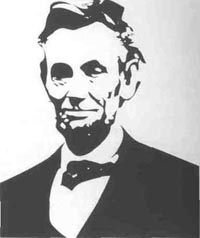Summer Book Section
Mark E. Neely, Jr. The Last Best Hope of Earth: Abraham Lincoln and the Promise of America. Cambridge, Massachusetts: Harvard University Press, 1993, Pp. 214 with illustrations, notes and index. $24.95 (cloth). The study of Abraham Lincoln is better understood as an industry than as an academic pursuit. The dozens of book- length studies issued each year as well as the countless articles in scholarly and popular journals illustrate our fascination with the Illinois lawyer who became the sixteenth president. While few of these books ever achieve the commercial potential envisioned by the author or publisher, even fewer have anything new to tell the reader as either information or interpretation. Happily, the latter is not true of Mark E. Neely's recent work. Those who are familiar with Neely's impressive body of scholarship on Lincoln will find it distilled here into seven short chapters detailing Lincoln's political career. The book is written for the general reader with little prior knowledge of Lincoln or the Civil War. It is not a biography in the traditional sense but rather an interpretive study of Lincoln's political philosophy and career. Neely's emphasis on Lincoln's public life stems from two concerns: that recent Lincoln studies pay too much attention to the early life and thus slight the presidency; and that information about Lincoln's public life is much more accessible and important in assessing his place in history. The first two chapters deal with Lincoln's life up to 1861. Neely does an excellent job of describing and explaining Lincoln's Whig philosophy, his attachmento economic development through industrialization, his anti-slavery sentiments and his shift to the Republican party in 1856. He believes Lincoln made a conscious decision to remain in New Salem after being defeated for the state legislature in 1832 since it gave him "a base to work from if he could find a way to make ends meet until the next election." Lincoln, using the third person voice, said he stayed in New Salem because he was "anxious to remain with friends who had treated him with so much generosity, especially as he had nothing elsewhere to go to." Whereas Neely gives Lincoln's decision a political spin by interpreting it as evidence of his burning political ambition, Lincoln's statement is more ambivalent. This suggests that circumstances, such as his ill-fated business partnership with William Berry and his indecision over a vocation, may have played a much larger role than hunger for political office in explaining Lincoln's continued residency in New Salem. Neely is at his best in the last five chapters dealing with Lincoln as president and commander-in-chief. Of particular note, however, are the chapters dealing with emancipation and civil liberties during the war. Neely takes issue with a number of recent studies diminishing Lincoln's importance as "the Great Emancipator." He shows how Lincoln's view on emancipation evolved. When Lincoln used his war powers as commander-in-chief to issue the Emancipation Proclamation, the result "greatly increased freedom for black Americans." He also believed that being able to use black troops, a provision of the Proclamation, was a military necessity vital for Union victory. Neely dismisses Lincoln's pronouncements on colonization of the freedmen as an expedient means to assuage the fears of whites. Lincoln assured that the fruits of freedom would not be revoked after the war by urging the adoption of the thirteenth amendment. The conclusions from Neely's careful research on habeas corpus suspension are concisely presented. He readily admits that Lincoln's policies on civil liberties were not logically consistent but formulated with a view to win the war. He effectively challenges modem claims that Lincoln punished critics by locking them
up before elections. Many of those arrested were confederate refugees or blockade runners from England individuals who could not vote. The timing of other mass arrests does not coincide with elections. Neely concludes that "Lincoln's internal security program was not conducted for partisan political advantage." In describing the circumstances which led to Lincoln's assassination, Neely accepts the views of William 0. Stoddard, a member of Lincoln's secretarial staff during the war, claiming "Lincoln's secretaries threw threatening letters away; they did not turn them over to the War Department or local authorities for routine investigation." John G. Nicolay, Lincoln's private secretary, disputes this characterization, arguing that such materials were shown to the president and passed on to authorities. Lincoln may have been fatalistic about his future, but he was not foolish enough to ignore death threats. Neely has done a brilliant job in simplifying the complex events of Lincoln's presidency into a highly readable narrative. For those who want to understand Lincoln's political life, no better introductory overview exists. Thomas F. Schwartz is State Historian and former curator of the Henry Horner Lincoln Collection, Illinois Historic Preservation Agency. July 1994/Illinois lssues/26
|
|||||||||||||||

